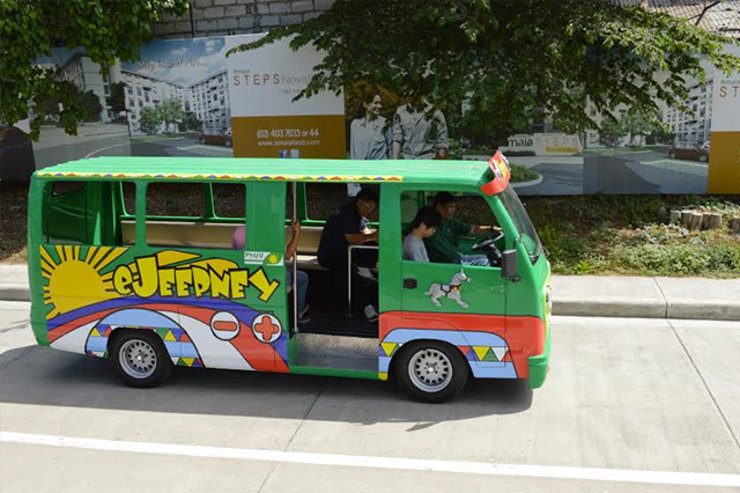SUMMARY
This is AI generated summarization, which may have errors. For context, always refer to the full article.

MANILA, Philippines (UPDATED) – The first draft of the electric vehicles (e-vehicles) road map for Asia-Pacific Economic Cooperation (APEC) member-economies will be ready in September, a committed output from the 22nd Automotive Dialogue Meeting which concluded Friday, April 24.
Ma. Corazon Halili-Dichosa, director of the Department of Trade and Industry (DTI) Board of Investments (BOI), said the United States proposed a 10-point template to guide member economies in formulating the road map.
The 10-point framework for the road map include:
- Pursuance of technical coordination to support harmonized standards and regulatory approaches in the region for both e-vehicles and their parts
- Embarking on regulatory cooperation and communication activities in APEC that include regulators, industries, international fora, and developers on international standards
- Adherence to promote the development of global technical regulations on e-vehicles, particularly on safety and the environment
- Cooperation in the development of e-vehicles standards and harmonization efforts
- Identification of technical areas in facilitating trade and investment to enable accelerated e-vehicles deployment
- Adoption of aligned approaches to e-vehicle charging and communications
- Use of international standards as the basis for any regulations pertaining to e-vehicles
- Promotion of e-vehicle specific first responder education and training efforts to ensure the safe and energy-efficient operation of e-vehicles
- Assistance in promoting e-vehicles use, production and trade, and support to greater global collaboration
- APEC member-economy representatives will give their views and information on each point listed in the agenda through a survey to be disseminated in May this year
The initial draft of the road map will be presented in the second part of the bi-annual automotive dialogue meeting tentatively set in September 2015.
Interoperability
Another output is the Global Value Chain (GVC)-SME for the Automotive Sector (GSAS) proposed by the Philippines and Malaysia. It aims to illustrate GVC mapping in the region, promote best practices in integration, and identify non-tariff barriers to trade and investment.
Proponents of the project are expected to submit a progress report on planned actions, focusing on how to help SMEs to promote their integration into GVCs from the trade and investment perspectives, organize an SME automotive GVC dialogue and workshop, and obtain support and funding for the projects.
An e-vehicles interoperability and research center under APEC is also proposed to provide technical and market analysis and support for helping economies achieve to following:
- Alignment of e-vehicles, charging systems, infrastructure, and communications
- Promotion of aligned vehicle-to-charging infrastructure connectivity and communication for e-vehicles in all APEC economies
- Alignment of EV, battery, and interoperability test procedures and verification tools
- Alignment of test procedures for energy consumption of e-vehicles
- Assisting economies in using renewable sources of energy for powering e-vehicles
- Exchanging information on international e-vehicle initiatives, industry conferences, and regulatory best practices
Dichosa also clarified the e-vehicles road map is different from the BOI-led automotive industry road map, as the former is focused on harmonizing the standards and regulations for the industry, and facilitating the promotion and use of these vehicles in the Asia-Pacific region.
The Philippine industry e-vehicles road map initially crafted by the Electric Vehicle Association of the Philippines (EVAP) is also eyeing a third quarter launch this year, hurdling delays and whether it would be given its desired incentives. (READ: Delayed PH electric vehicles road map eyes 3Q 2015 launch)
Meaningful participation
For the private sector part, Philippine Automotive Federation (PAF) President Vicente Mills Jr. said that the automotive sector creates a “trickle down effect” because it uses a lot of small and medium enterprises (SMEs) for its needs, thus the sector is of interest to most economies in the world.
Mills said harmonizing standards and reducing trade barriers are a must to become easier for the SMEs to integrate. Developing also the SMEs not only in the Philippines but in the developed economies of APEC is also part of the agenda to give them a chance to have lasting success in the business.
“We’re interested in tiers 2 to 4 companies. These are small companies producing the small parts of a vehicle. They’re left out of the big picture. Now, the APEC economies are focusing on SMEs to have them participate more meaningfully in the business of globalization,” Mills said.
Thus assisting the SMEs is a must to make them fully integrated in the automotive global value chains.
Also, the Philippines is eyeing more brand principals – the likes of top carmakers Ford, General Motors, Honda, Mitsubishi, Toyota – to locate or outsource most of their production capabilities to the country.
“If there’s any industry that can contribute to the economy largely to the country where they operate, it’s the automotive industry,” Mills pointed out. – Rappler.com
Add a comment
How does this make you feel?
There are no comments yet. Add your comment to start the conversation.